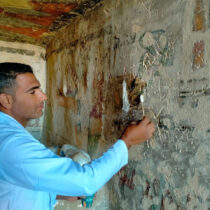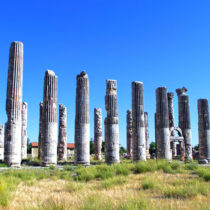“City-monster”.” Unbearable city”. “The ugliest capital city in Europe”. These are among the descriptions that we usually hear, read and very often repeat, when referirng to Athens. When these are combined with our country’s problems of development ,they contribute to our notion that it is wrong or even hopeless to have money or efforts invested in Athens. At the same time they nourish and reinforce a negative attitude on the part of the citizens towards their city. And this perhaps is the most unlucky factor for the future of Athens. Although the city undoubtedly faces very serious environmental and town-planning problems, it must regain and restore an identity which will inevitably incorporate all the characteristics of its origin and evolution. These are what make Athens unique, therefore they are precious, regardless whether they are suited or not to an ideal model. Nevertheless, the identity of the city should also be a modern one, combining all those features which will allow it to function as the cultural capital of Europe, that, apart from its glorious past also has an excellent present and a most promising future. There is no doubt that modern Athens is not graced with beautiful architecture, its real ugliness, however, the visual confusion and disorder are to a large extent due to the brutal alterations of its aspects by improper, additional elements. It has already been said that most unlucky for the future of the city is the negative mood and attitude of its inhabitants. Here one should add that apart from serious, major choices,regarding such things as air pollution or traffic, there also exist the “minor”, although decisive questions, the impact of which have a strong symbolic and educational character. These secondary choices may also have the power to persuade us that Athens is after all a city with future, if only we were able to look at it again, approach it in a new spirit, reconcile ourselves to its peculiarities, sense its perennial historicity and love it with its virtues and defects.
Another way of looking at Athens
09 Aug 2012
by Archaeology Newsroom
- A
- A
- A


